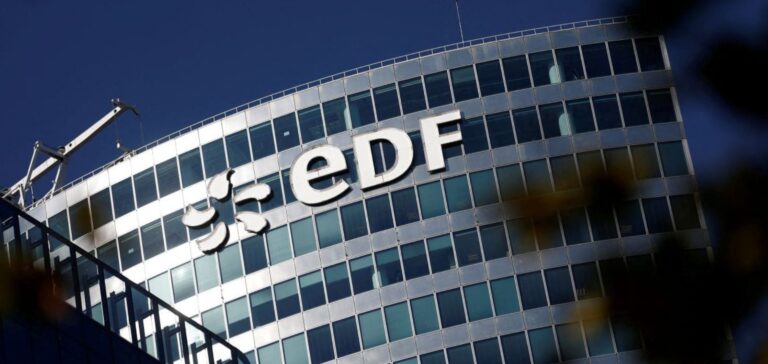EDF employee shareholders, who feel cheated by the financial terms of the renationalization of the electric company, decided Friday to file a new appeal to obtain a “complementary price” for their shares, their representative said.
The representatives of the shareholders have decided “unanimously” to initiate an “indemnity appeal before the Council of State”, Martine Faure, president of the Fonds commun de placement en actions (FCPE), which represents some 100,000 EDF employees or pensioners who have invested their money in the group, told AFP. They intend to “invoke the notion of fair compensation for the expropriation of employee shareholders by considering that 12 euros is still not a fair price”, she explained about this appeal.
Conflict over share price
These shareholders have challenged for months by multiple appeals the price of 12 euros per share set by the State, claiming a minimum of 15 euros while at the opening of the capital of the energy company in 2005, the share was worth 32, with a discount of 20% for employees at 25.60 euros. However, they are not contesting the decision of the French financial markets authority (AMF), which had declared the simplified takeover bid of the State for EDF shares compliant.
The last appeal of this type was rejected on May 2 by the Paris Court of Appeal, giving the State the possibility of reopening the takeover process. Shareholders who still own EDF shares can sell them, from May 4 to May 17, the date of the final closing of the operation, to the French State, which already held nearly 96% of the company’s capital before the Court of Appeal’s decision. The appeal to the Conseil d’Etat, which will have no impact on the takeover bid, will be filed when the squeeze-out procedure, which allows EDF to be renationalized by forcing the remaining shareholders to sell their shares after the closing of the transaction, is initiated.
Another stakeholder in the latest appeals rejected by the courts, Colette Neuville, president of ADAM, which has been defending minority shareholders for 30 years, said on Friday that she had not yet made a decision on a new procedure. By renationalizing, the public authorities wish to spare EDF from the constraints of the stock market to enable it to relaunch nuclear power more quickly by financing the extension of an aging fleet, at a time when Russian gas is in short supply, and the construction of at least six new reactors in the coming decades.






















